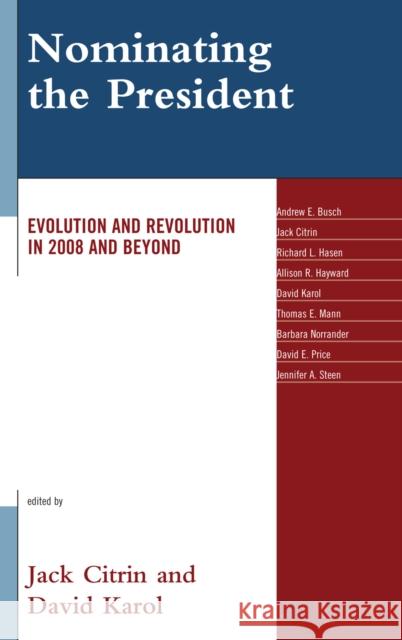Nominating the President: Evolution and Revolution in 2008 and Beyond » książka
Nominating the President: Evolution and Revolution in 2008 and Beyond
ISBN-13: 9780742566378 / Angielski / Twarda / 2009 / 140 str.
The 2008 presidential nominations were unprecedented in many ways. Marking another step in the democratization of the selection process and a surprising loss of control by party elites, the contests in both parties were unusually competitive and the outcomes belied the predictions of experts. This book offers a fresh look at the role of parties, the constraints of campaign finance, the status of front-runners, and the significance of rules, race, and gender in the post-reform era. In this volume, leading scholars assess the state of the process with original research about money, scheduling, superdelegates, and the role of race and gender in voting. Original analyses show how changes in campaign finance and the scheduling of primaries and caucuses helped determined the outcomes in both parties. Race, once thought of as a handicap, proved an asset for the Obama campaign. 2008 marked another milestone in the democratization of the nominations process with expanded participation by rank and file voters in donating money, voting, and using the Internet. This timely book provides a glimpse into the future of party nominations and elections.











